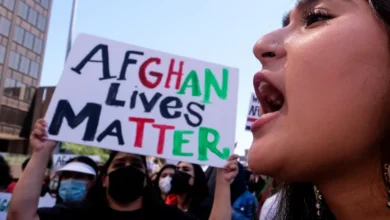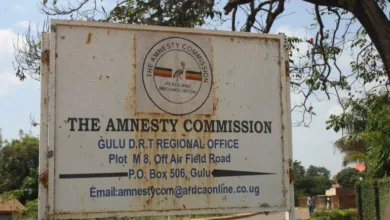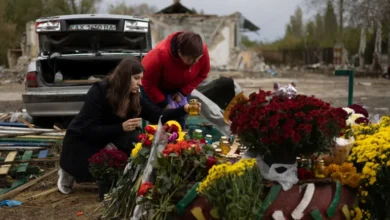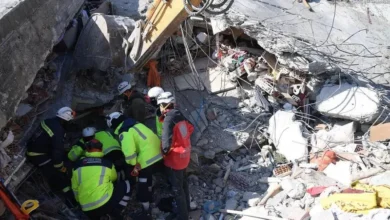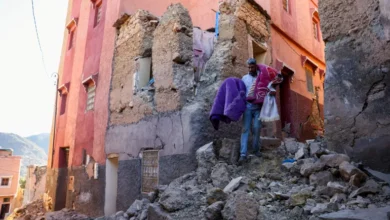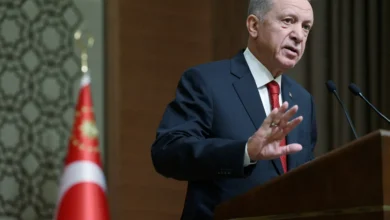US calls for calm ahead of anticipated Israeli strike on Lebanon’s Hezbollah

Defense Secretary Lloyd Austin and the top US military general spoke to their Israeli counterparts, the Pentagon said Monday, ahead of an anticipated Israeli military operation against Lebanon’s Hezbollah while the White House played down fears of an “all-out war.”
US officials believe there will be an Israeli response to the weekend attack on a group of children in the occupied Golan Heights, which Washington said was the result of a Hezbollah missile.
The Lebanese group denied responsibility, but US officials say Hezbollah undoubtedly launched the missile, which they assess erroneously targeted a football field.
After the incident, which killed at least 12 children, Israel’s security cabinet authorized the Netanyahu government to carry out a military response.
“A response is coming,” one US official said, who, like others for this article, spoke on condition of anonymity.
It remains unclear what the response will look like or how significant it will be. But US military forces in the region are bracing for attacks by Iran-backed militias in Iraq and Syria following the Israeli response, officials said.
Austin spoke to Yoav Gallant about the Majdal Shams attack and discussed threats “still facing Israel from a range of Iranian-backed terrorist groups, including Lebanese Hezbollah.”
Deputy Pentagon Press Secretary Sabrina Singh said the two discussed the opportunity to finalize a hostage and ceasefire deal in Gaza. They also spoke about efforts to reach a diplomatic solution that stops all attacks and allows citizens on both sides of the Lebanon-Israel border to return home safely. “Finally, Secretary Austin reaffirmed his unwavering commitment to Israel’s security and right of self-defense,” Singh said.
Chairman of the Joint Chiefs of Staff Gen. CQ Brown also spoke to his Israeli counterpart about deescalating regional tensions. “The US is actively striving to mitigate tensions across the Middle East region and foster enduring security and stability in close collaboration with international allies and partners,” Joint Staff Spokesman Capt. Jereal Dorsey said.
Despite predicting an escalation in the next few days, officials said the US still believes there is time for a diplomatic solution to calm tensions along the Blue Line.
Randa Slim, Senior Fellow at the Washington-based Middle East Institute, said two factors that would determine the potential for a large regional escalation would be whether the Israeli response targets Hezbollah’s military sites only and the casualty rate.
“An Israeli attack that targets civilian sites, especially in Beirut and its southern suburbs, leading to a high casualty rate, will be quickly countered by a Hezbollah reaction targeting a major Israeli city,” Slim told Al Arabiya English. “The likelihood of this type of reaction-counter reaction devolving into an all-out regional war involving other members of Iran’s led resistance axis will then be certain.”
Overnight Sunday, the top US diplomat spoke to the Israeli president and emphasized the importance of preventing escalation along the Lebanon-Israel border and discussed efforts to reach a diplomatic solution to allow citizens on both sides of the border to return home.
Speaking to reporters on Monday morning, National Security Council Spokesman John Kirby said the “all-out war scenario” between Lebanon and Israel was “exaggerated.”
He added that Israel has “every right to defend itself.” Pressed as to why the Biden administration was confident this would not lead to an all-out war, Kirby said: “We certainly don’t believe that, as horrific as this attack was… that it needs to result in any kind of escalation.”
Senior State Department diplomat Richard Verma was in Beirut last week to discuss support for US citizens in a “complex and quickly changing security environment,” the State Department said. He also went to Cyprus to visit logistical facilities and be briefed on ongoing planning to support crisis management in the region before he met US military and diplomatic personnel at Incirlik Air Base to review resources available to support crisis preparedness needs.
And over the weekend, Lebanon’s flag carrier and other international airlines canceled or delayed flights into Beirut due to the ongoing situation. Middle East Airline’s Chairman Mohammed al-Hout said there was no information or fear about a strike on Beirut’s airport.
However, the US Embassy in Beirut sent an email encouraging US citizens traveling to or from Lebanon to monitor their flight status closely, be aware that itineraries could change with little or no warning, and make alternate plans due to the complex security environment.
